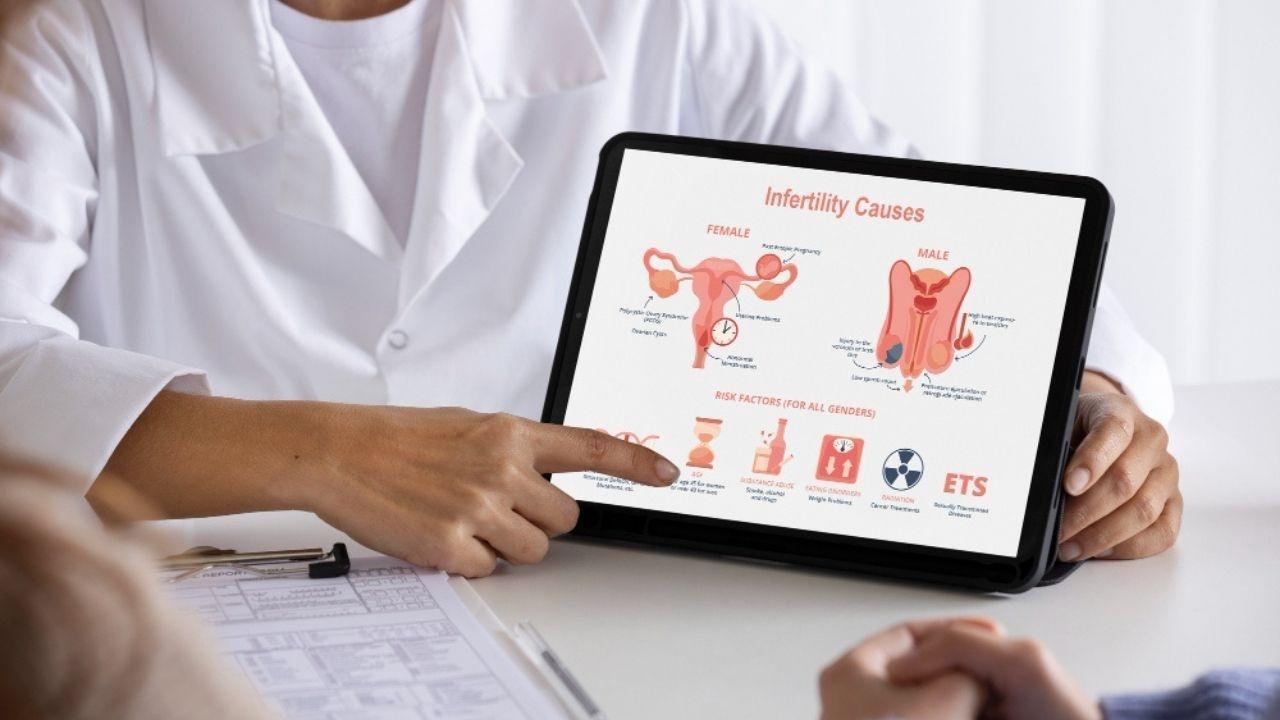
Post by : Mikhael Nasser
Polycystic Ovary Syndrome (PCOS) is a common condition impacting numerous women globally, especially during their reproductive years. Despite its widespread occurrence, many still lack a clear understanding of PCOS, often leading to underdiagnosis. This syndrome manifests in various ways, ranging from irregular menstrual cycles and hair thinning to weight gain and issues with fertility. Recognizing the symptoms early is vital for effective management. This guide offers an insight into what PCOS is, the typical symptoms, and how timely diagnosis can facilitate better management of the condition.
PCOS is a hormonal imbalance affecting around 10% of women of childbearing age. The condition is marked by abnormal hormone levels that may lead to a range of symptoms. Women with PCOS might produce elevated levels of male hormones known as androgens, causing irregular periods, increased hair growth, and challenges in conceiving. While ovarian cysts are frequently linked to this disorder, not every woman diagnosed with PCOS will have cysts, nor do all women with cysts have PCOS.
Additionally, PCOS is associated with insulin resistance, an issue where the body has difficulty managing insulin, resulting in rising blood sugar levels and potential weight gain, which can exacerbate symptoms.
The symptoms of PCOS can differ widely among women and typically develop gradually. Some may only experience a couple of symptoms, while others may exhibit several. Common symptoms of PCOS include:
Irregular Menstrual Cycles
Women struggling with PCOS may observe inconsistent menstrual cycles, such as infrequent periods, heavy bleeding, or missed cycles entirely due to irregular ovulation.
Hirsutism
Elevated androgen levels may result in excess hair growth, particularly on the face, back, or chest. This early sign of PCOS can be distressing.
Acne and Greasy Skin
Higher androgen levels might increase oil production, resulting in acne outbreaks, particularly on the face, back, and chest.
Weight Gain and Difficulty in Losing Weight
Women with PCOS often face challenges with weight gain, especially around the waist, and may find it hard to lose weight even with diet and exercise due to insulin resistance.
Thinning Hair
Women may notice unexplained thinning or loss of hair on the scalp, a result of hormonal fluctuations.
Infertility
PCOS is a significant contributor to infertility due to hormonal imbalances affecting ovulation. Nonetheless, many women can conceive with appropriate treatment.
Other Symptoms
Mood fluctuations, fatigue, and sleep disturbances may accompany PCOS symptoms, complicating overall management.
Symptoms of PCOS often develop gradually and can be mistaken for other health issues, leading to late diagnosis. Early identification is crucial in preventing complications like type 2 diabetes and heart disease. If you notice any concerning symptoms, it’s essential to consult a healthcare professional for thorough evaluation.
Diagnosis typically involves:
Medical History Review
Doctors ask about menstrual irregularities, weight fluctuations, acne, excessive hair growth, and family history of PCOS.
Physical Examination
Doctors often look for visible indicators like hirsutism or skin issues.
Blood Tests
These tests are used to analyze hormone levels, confirming possible imbalances.
Ultrasound Imaging
A pelvic ultrasound helps identify ovarian cysts; however, the presence of cysts isn’t a definitive marker for PCOS.
While there's no definitive cure for PCOS, early diagnosis enables effective symptom management, reducing the risk of serious complications. Key management strategies include:
Healthy Lifestyle Choices
Eating a balanced diet and maintaining a regular exercise regimen can significantly aid in managing insulin levels and weight control.
Medical Interventions
Doctors may prescribe medications for hormone regulation and insulin control, including birth control to manage periods and additional medications for those facing fertility challenges.
Skincare and Hair Treatments
For issues such as hirsutism or acne, treatments include anti-androgen medications and laser hair removal.
Emotional Wellness
Managing PCOS can impact mental health; seeking therapy or counseling can be beneficial.
PCOS can affect various areas of life, from menstrual health to weight and fertility. Being informed about the symptoms is vital for early diagnosis and effective management. While there is no cure, lifestyle adjustments, medical support, and emotional care can empower women to lead healthier, more fulfilling lives. If you suspect you might have PCOS, consult a healthcare provider for personalized assessment and care.
This article serves purely informational purposes and should not replace professional medical advice. It’s crucial to consult a healthcare expert for tailored guidance regarding PCOS and associated health concerns, as experiences and responses to management can vary greatly. Always seek professional advice before making any fundamental changes to your healthcare approach.










Mattel Revives Masters of the Universe Action Figures Ahead of Film Launch
Mattel is reintroducing Masters of the Universe figures in line with its upcoming film, tapping into

China Executes 11 Members of Criminal Clan Linked to Myanmar Scam
China has executed 11 criminals associated with the Ming family, known for major scams and human tra

US Issues Alarm to Iran as Military Forces Deploy in Gulf Region
With a significant military presence in the Gulf, Trump urges Iran to negotiate a nuclear deal or fa

Copper Prices Reach Unprecedented Highs Amid Geopolitical Turmoil
Copper prices soar to all-time highs as geopolitical tensions and a weakening dollar boost investor

New Zealand Secures First Win Against India, Triumph by 50 Runs
New Zealand won the 4th T20I against India by 50 runs in Vizag. Despite Dube's impressive 65, India